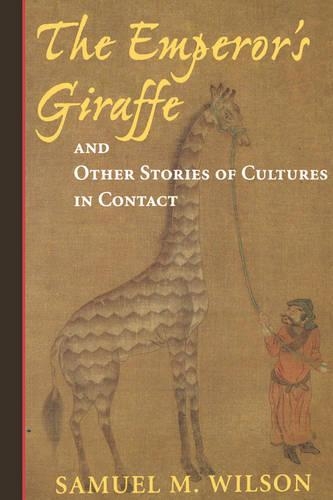
The Emperor's Giraffe: And Other Stories Of Cultures In Contact
(Paperback)
Publishing Details
The Emperor's Giraffe: And Other Stories Of Cultures In Contact
By (Author) Samuel P Wilson
Basic Books
Basic Books
26th May 2000
United States
Classifications
Professional and Scholarly
Non Fiction
Sociology and anthropology
303.48209
Physical Properties
Paperback
240
Width 152mm, Height 229mm
Description
An outbreak of a disease known as the black vomit prevents the English from strengthening their hold in The New World in the eighteenth century, with huge repercussions; the untimely death of an emperor prevents Chinese and Portuguese explorers from meeting along the coast of West Africa in the fifteenth century; the most significant factor in the Spanish exploration of North America turns out not to be Spains mighty armies or her unrivaled fleet, but the lowly mosquito. In human history, little things can make a big difference, as Samuel Wilson demonstrates in The Emperors Giraffe and Other Stories of Cultures in Contact. Focusing on individuals caught by chance in pivotal times and places, Wilson explores the ways in which seemingly small decisions made during the initial contact period between two cultures have had a huge impact on the course of history. Many of the stories illustrate that, despite thousands of years of isolation, the states and empires of the Old World were remarkably similar in structure and organization to those of the Americas. And the course of events in these past societies was at least partially determined by decisions made by people very much like ourselvesarmed with imperfect knowledge and fueled by personal agendas. More than anything else, The Emperors Giraffe shows that the consequences of these contact periods are still very much with us, in some rather surprising ways. Who could have predicted that the British colonization of the West Indies would come to a symbolic end with a 1950 EnglandWest Indies cricket match Who would have guessed that centuries-old European folk tales would make their way to America and be brought back to Europe hundred of years later in the guise of Disney characters Little known events with large consequences and remarkable characters fill these interesting, informative, and sometimes surprising essays.
Author Bio
Samuel M. Wilson is associate professor of anthropology at the University of Texas at Austin. He is editor of The Indigenous Peoples of the Caribbean, coeditor of Ethnohistory and Archaeology: Approaches to Postcontact Change in the Americas, and author of Hispaniola: Caribbean Chiefdoms in the Age of Columbus and The Archaeology of the Caribbean. Wilson also writes the Worlds in Contact" column for Natural History magazine.
